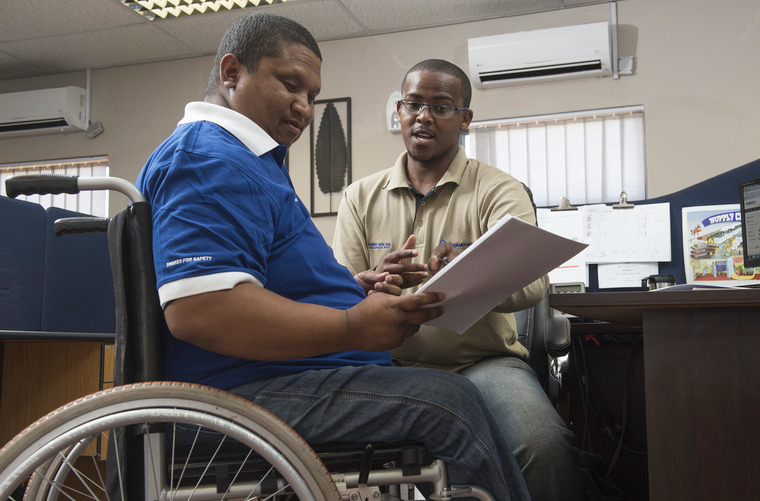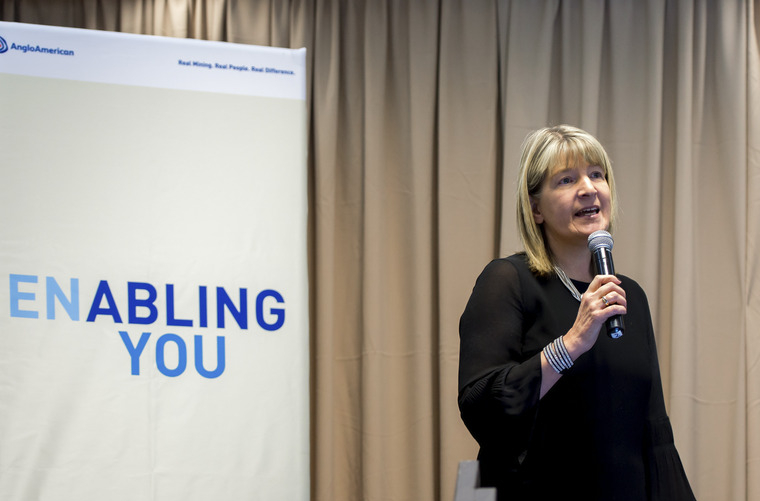Today, more than 15% of the world’s population has a disability. We are committed to making a conscious effort to create a safe, effective and enabling environment for all.
The business case for a more diverse, inclusive workforce has never been stronger. Recent research highlights how gender-diverse companies, on an average, tend to outperform less diverse organisations by almost 50 percent. In the case of ethnicity and culture, they can outperform less diverse peers by as much as 36 percent in profitability1.
Of course, diverse talent representation – an important driver of inclusion within an organisation – goes well beyond gender and ethnicity. In separate research published in October last year, global consulting firm McKinsey stated that, addressing the barriers to work for those with disabilities could boost global GDP by a total of $400 billion2, making a clear-cut case for closing the disability inclusion gap.
A broad-ranging term, the United Nations (UN) defines disability as impairments of a physical, mental, intellectual or sensory nature which, in interaction with various barriers, may hinder a person’s full and effective participation in society on an equal basis with others3.
According to the UK Department of Work and Pensions, 83% of disabilities are acquired during a person’s working life4. This means, statistically, that there is a high likelihood that we currently work with, or may end up working with individuals coming to terms with a newly acquired health condition, minor or life-changing, or living with a disability ourselves.
At Anglo American, Inclusion and Diversity is a critical foundation of our culture. We make a conscious effort to create a safe, effective and enabling environment; one in which all our colleagues are encouraged to bring their whole selves to work, and that recognises that a failure to welcome diversity in all its forms can lead to great talent being overlooked.
Normalising the conversation around disabilities is a key part of this, with work ongoing across our organisation to develop a consistent, group-wide enabling strategy for disability; one that ensures an environment in which those with visible and less visible disabilities have an opportunity to contribute fully.
Our Enabling You Colleague Network has an important role to play. Acting as an advisory board to the business, the team supports policy development and improvements, helping create a safe and inclusive work environment in which people can share experiences, ask questions and generally interact. Raising awareness of issues affecting those with disabilities through events, external speaker engagements and leader training also falls within their remit, complemented by support from external stakeholders like the Business Disability Forum, a UK-based membership organisation, which Anglo American joined in June 2018.
Peter Whitcutt, CEO of Anglo American’s Marketing business, is part of the global working group driving our approach, as well as an executive sponsor of Enabling You. He said: “Our strategy looks at the whole lifecycle of an employee, from attraction and recruitment, through to the development of inclusive policies and the removal of barriers to those employees with disabilities.
“Ensuring all our employees reach their full potential at work is very important, and creates a better and safer business for us, our stakeholders and the communities in which we operate. We can all take steps to drive diversity and inclusion within our organisations – whether through getting informed, being part of the conversation, sharing our experiences, putting ourselves in our colleagues’ shoes, or by being open to viewpoints that are different to our own.”
1 ‘Diversity wins: How inclusion matters’, McKinsey & Company, May 2020: https://mck.co/31BSi8M
2 ‘Intersection, Delivering on Diversity, Gender Equality and Inclusion’ newsletter, 6 October 2021, McKinsey & Company: https://mck.co/3GOXntS
3 Convention on the Rights of Persons with Disabilities and Optional Protocol, United Nations, P. 4: https://bit.ly/305e84c
4 UK Government, Department of Work and Pensions, Disability Confident Campaign, November 2016: https://www.gov.uk/government/collections/disability-confident-campaign



